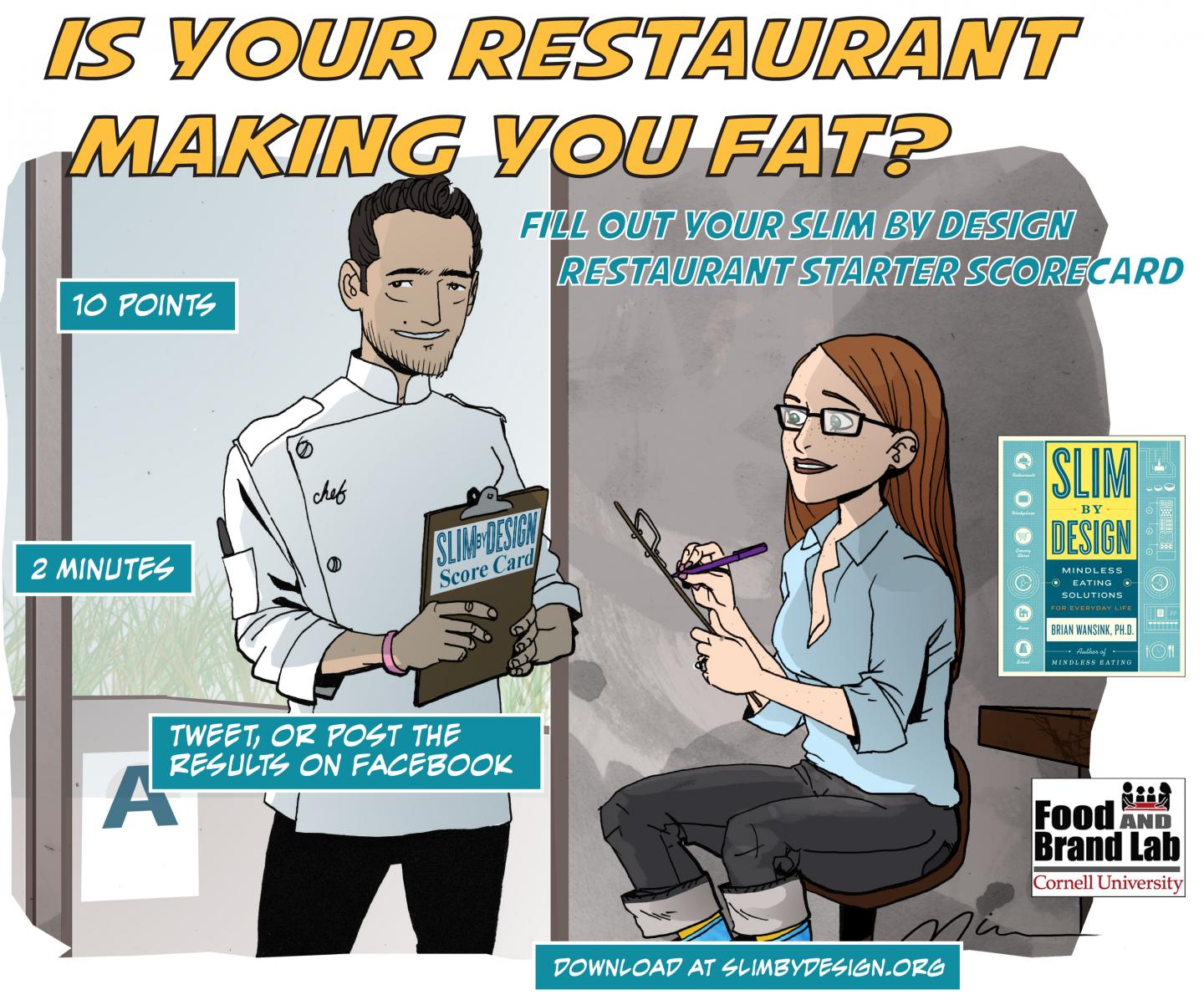Researchers at Cornell Food and Brand Lab have developed a tool that will allow diners as well as restaurant managers identify changers that could enable them to eat healthier at restaurants and food outlets.
Developed by Brian Wansink, Gnel Gabrielyan, and Steven A. Wendel, the tool is a means to promote healthy eating behaviour without undermining revenue for restaurants. As far as diners are concerned, they won’t have to pay extra for healthier food at restaurants.
Researchers used their field study results and principles of behavioral science to identify 100 actions that restaurants could take to make it easier for diners to eat healthier. The researchers then created a 100 point and a 10 point Restaurant Scorecard for Healthy Dining.

CREDIT
Daniel Miller
To examine if the scorecards could be reliably used to rate whether a restaurant is making its diners fat by design or slim by design, they recruited eight diners to test out both a 10-point and a 100-point scorecard in a large cafeteria, an Applebee’s, and two different McDonald’s in a medium-sized city. The researchers concluded that the restaurant scorecards can be a reliable way to rate how effective a restaurant is at helping you dine healthfully.
Lead researcher Brian Wansink, PhD, director of the Food and Brand Lab at Cornell University and author of the new book, Slim by Design: Mindless Eating Solutions for Everyday Life, says, “Restaurant managers want people to leave feeling good, these scorecards can help identify potential improvements that will make diners leave feeling both satisfied and healthy.”
